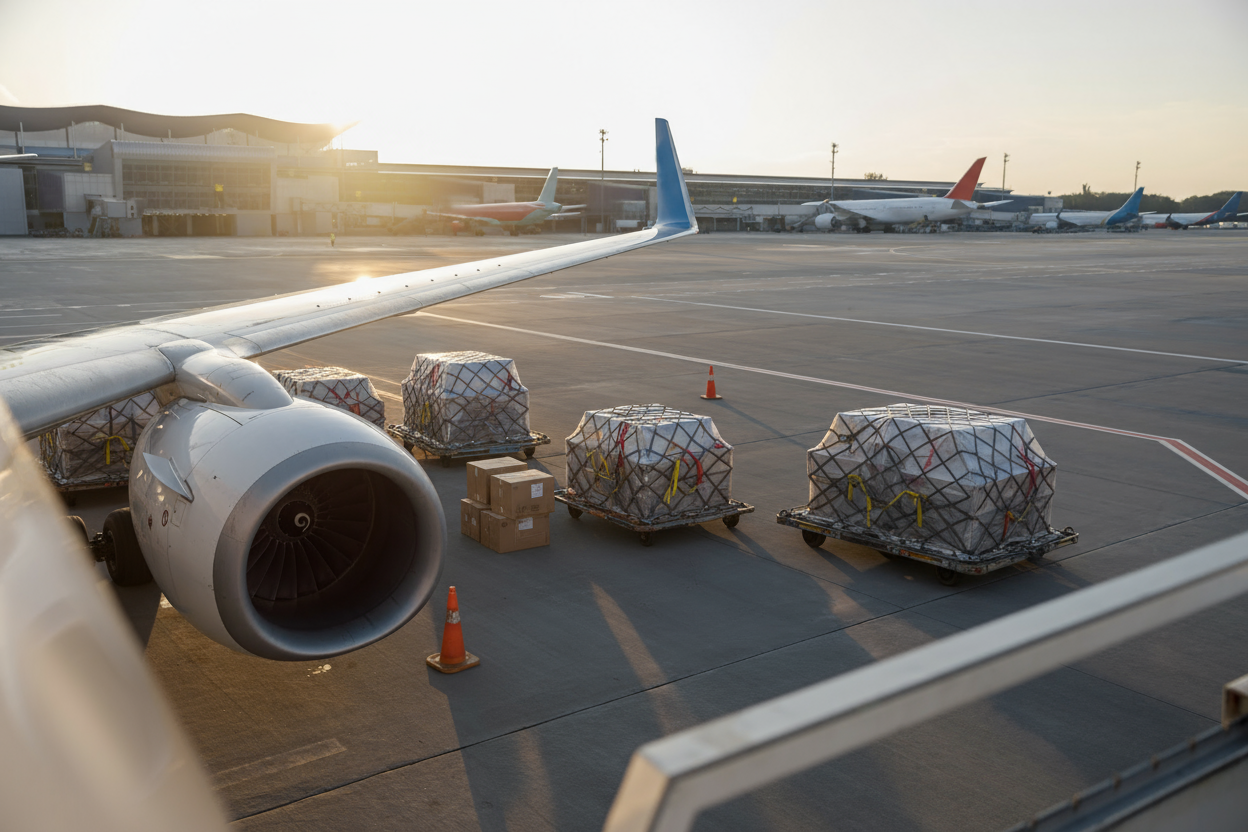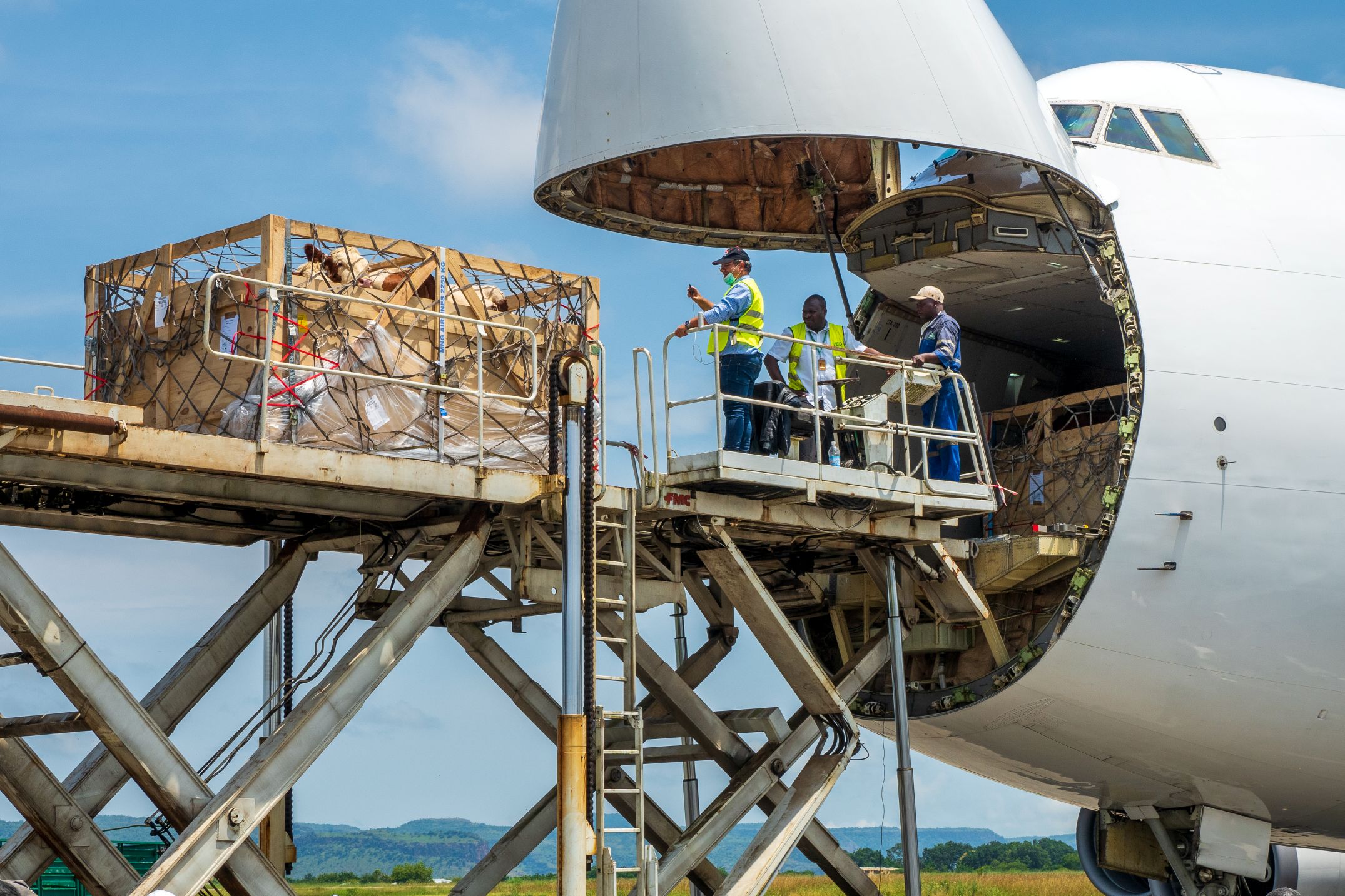Trump import tariffs logistics efforts in 2025 triggered seismic shifts across global supply chains—especially for General Sales & Service Agents (GSSAs) in air cargo and charter sectors. At BlueX GSSA, we blend global reach with local insights.
With 20+ years of experience, we specialize in reliable and efficient GSSA Air Cargo and Charter Services designed to meet your unique logistics needs. Our expertise in navigating complex regional regulations, optimizing air cargo operations, and addressing challenges like Trump import tariffs logistics ensures seamless, hassle-free solutions. Leveraging in-depth local market knowledge, we help streamline your supply chain, even during challenges like fluctuating tariffs or market disruptions.
Whether you’re shipping critical goods or managing complex logistics, our dedicated team is committed to delivering exceptional service. Choose us as your trusted partner for air cargo services, charter logistics, and navigating Trump import tariffs logistics, and experience consistent, dependable results.
1.- Overview of Trump’s 2025 Tariff Wave
Broad-based Reciprocal Tariffs: Starting in April 2025, the Trump administration will implement a new tariff policy with rates ranging from 10% to 145%, affecting nearly all imported goods. This sweeping tariff plan targets major trade partners, including China, Canada, Mexico, and the European Union, as part of the “Liberation Day” executive order. The goal is to reduce dependence on foreign goods, boost U.S. manufacturing, and support domestic industries.These tariffs, part of the Trump import tariffs logistics, are expected to impact global trade relationships, disrupt supply chains, and lead to changes for both businesses and consumers. Stay informed on how these tariffs could affect international trade, manufacturing, and the economy.
Key Commodity Impact: Trump import tariffs logistics: Steel, aluminum (up to 50%), autos and parts (25%), copper (50%), with investigations ongoing in pharmaceuticals, semiconductors, aircraft, and critical minerals.
Trade Volatility: Courts have temporarily blocked some tariffs, while others have been paused or reinstated, creating a confusing and inconsistent tariff landscape. This ongoing back-and-forth has led to uncertainty in tariff enforcement, making it challenging for businesses and policymakers to navigate changing trade rules and regulations tied to Trump import tariffs logistics. Stay informed on the latest tariff updates to better adapt to these shifting policies.
2.- Tariffs + Logistics = Operational Disruption
Air Cargo Surge & Parcel Disruptions
- E‑commerce and small-parcel shipments saw demand fluctuation due to rising tariff costs.
- To beat tariff deadlines, shippers moved goods via air, pushing cargo volumes above 30% of U.S. imports—record highs.
Freight Forwarders Reconfiguring Routes
- Tariffs forced logistics providers to diversify supply origins (e.g., from China to Southeast Asia), boosting demand for Southeast Asia–U.S. freight options .
- Airforwarders Association cautioned that sudden policy shifts, such as Trump import tariffs, could disrupt logistics and business planning.
Cost Pressures & Delays
- Trump import tariffs logistics challenges raised tariffs, squeezed profit margins, and triggered re-routing operations, adding cost and complexity.
- U.S. shipments from China dropped 43%, while port congestion and cancellations mirrored pandemic-era shocks.
- Increased delivery delays (~21 days) triggered inventory build-up, hurting output and raising prices.
3.- GSSA Air Cargo & Charter Strategy: Why BlueX GSSA Leads
At BlueX GSSA, our two-decade expertise positions us to navigate these shifts seamlessly:
- Regulatory Oversight & Compliance
- We constantly monitor tariff updates, duty exemptions (USMCA, de minimis), and legal rulings to ensure accurate handling and optimized duty flows .
- Route Diversification
- Our established global partnerships span emerging hubs like Vietnam, India, and Mexico—enabling effective geographic shifts in sourcing.
- Flexible Capacity Solutions
- Tailored cargo charters reduce bottlenecks during seaport backlog or pre-tariff surges, guaranteeing timely delivery.
- Cost Mitigation via Pre-Clearance & Consolidation
- We use bonded warehousing, advance filing, inventory management, and consolidated shipments to offset tariff-driven cost increases.
- Tech & Data Analytics
- Investments in AI-driven forecasting, delivery tracking, and dashboard insights allow shippers to proactively plan around tariff deadlines and inflation trends.
4.- Real-World Examples
Auto Industry Support
- In March 2025, Trump’s auto-part tariffs on imports from Mexico and Canada created major challenges for automotive manufacturers and OEMs. These tariffs disrupted supply chains, increased manufacturing costs, and made it harder for companies to source cross-border components. BlueX GSSA stepped in to help businesses navigate these challenges with reliable, tariff-compliant shipping solutions. By offering efficient and USMCA-aligned transport options, BlueX GSSA helped manufacturers navigate Trump import tariffs logistics, reduce costs, maintain supply chain stability, and keep production running smoothly. If you’re looking for effective ways to handle trade regulations and minimize tariff impacts, BlueX GSSA is your trusted logistics partner.
Copper & Copper-Product Movement
- Starting August 1, 50% tariffs on copper are set to take effect, but we’ve taken proactive steps to minimize supply chain disruptions. By leveraging tariff-friendly sourcing strategies, navigating Trump import tariffs logistics, and scheduling air charters efficiently, we’ve secured a reliable copper supply for our Latin American markets. These actions ensure uninterrupted operations and help meet rising demand, even during challenging times. Learn more about the impact of copper tariffs on global supply chains and automotive logistics here.
5.- Best Practices for GSSAs & Shippers
- Stay Informed: Monitor tariff law changes daily; legal rulings matter.
- Diversify Sources: Leverage multi-origin strategies (e.g., Vietnam, India).
- Use Air Charters Strategically: Especially around tariff instatement dates.
- Employ Bonded Warehouses: Manage duties strategically for cash flow.
- Invest in Analytics: Forecast delays, cost shifts, and adjust proactively.
6.- Takeaways & BlueX GSSA’s Edge
- Tariffs Remain a Flashpoint: With unpredictable policy and legal shifts, Trump import tariffs logistics will continue to unsettle operations.
- GSSAs are Critical: Air cargo and charter flexibility are key to adapting to supply chain shock.
- BlueX GSSA Experience: From compliance insight to diversified routing, BlueX ensures continuity and resilience for clients.
- Competitive Advantage: Our global reach and local in-country expertise combine to make us the trusted partner.
Conclusion
In summary, Trump import tariffs logistics policies in 2025 forced radical shifts in supply chain dynamics—accelerating air cargo demand, route diversification, and cost pressure. GSSAs such as BlueX GSSA play a pivotal role in mitigating these disruptions through compliance, charter flexibility, and tech-driven insights. As these tariff policies evolve, having a logistics partner with deep expertise and local intelligence remains the cornerstone of successful operations.





